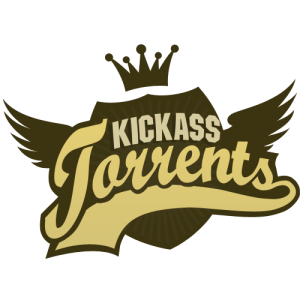 It’s January 2018 and after enjoying a meal with her family, recent school-leaver Rachel Owen walks to the mat to pick up an envelope addressed to her father. It’s from the family’s Internet provider and she opens it expecting to see the latest special offers.
It’s January 2018 and after enjoying a meal with her family, recent school-leaver Rachel Owen walks to the mat to pick up an envelope addressed to her father. It’s from the family’s Internet provider and she opens it expecting to see the latest special offers.
Instead, she’s confronted with a nasty surprise. Her ISP says that it has handed over her father’s personal details to a foreign copyright holder after it monitored the family’s IP address sharing a movie online.
Having read that copyright holders usually settle these complaints for a few hundred pounds, Rachel comes clean with her angry father. Five months later in May 2018, the inevitable letter arrives.
It’s from a UK-registered company, with little to no assets, operating from a virtual office in London. In the past, these so-called copyright trolls had used firms of solicitors, but with the Solicitors Regulatory Authority paying close attention, it’s now safer to conduct business outside their jurisdiction and from offices that effectively do not exist.
The letter claims that the family’s IP address was tracked using the latest “forensic” technology. As expected, there’s an offer to settle with cash, but not for the £500 Rachel had been expecting.
Instead, the company is demanding £5,000 for the massive “risk of loss” Rachel’s download had subjected them to. It becomes evident that this wording has been carefully extracted from the Digital Economy Act passed by the UK government in the latter half of 2017. It’s a clever but devious tactic.
Under that legislation, which passed through parliament despite many warnings, anyone merely exposing a copyright holder to a mere risk of loss can be jailed for up to ten years. Lucky then, that this copyright holder is choosing to settle.
Unfortunately, neither Rachel nor her family has £5,000. Rachel’s job at an insurance company call center brings in just £5.55 an hour. Her father, who works as a driver, has a mortgage, credit card bills, and an overdraft. £5,000 is out of the question. So, together, they decide to write back to the copyright trolls to inform them they cannot pay.
Another six weeks passes and in June 2018 a new letter drops onto the mat. The copyright trolls note the refusal to pay and offer another month to settle. After that, all of the evidence will be passed to the police and a criminal prosecution will take place. For a naive and otherwise law-abiding teenager who downloaded a single movie, this is unfathomable.
However, thanks to the Digital Economy Act, which criminalizes anyone who violates a copyright holders’ distribution rights, this isn’t an idle threat. Ignoring warnings from organizations such as the Open Rights Group, the government refused to put in a threshold of criminality back in 2017. This means that after sharing just a single movie online, Rachel committed a criminal offense.
No one really thought a case like this would end up at trial. No one thought that a teenager like Rachel could end up with a jail sentence for sharing a single movie. That said, everyone should have anticipated the venom of copyright trolls hell-bent on ensuring that people in Rachel’s position settle future claims without putting up a fight.
During Rachel’s trial the evidence against her began to build. Someone, no one knows who, recorded the sci-fi movie in a theater and uploaded it to a torrent site. Rachel had no part in that but circumstantial evidence against her began to build. The trolls know this game well and pushed all the right buttons. Content creators need to be protected, they argued time and again.
Rachel told the court that when she jumped on the torrent she thought there were lots of other people seeding already – she just wanted a quick movie. However, according to the copyright trolls’ tracking company, she was among the initial handful of sharers. These people, they argued, were effectively a torrent swarm conspiracy who kickstarted an unstoppable and damaging chain of events.
Rachel, through her state-appointed lawyer (who was competent but had no specific copyright expertise), was powerless to argue otherwise. The government’s promise that the Digital Economy Act wouldn’t target kids in a bedroom seemed a distant memory and things were clearly getting out of hand.
Within 24 hours of appearing online this independent movie, in which the copyright holders had reportedly “invested heavily”, was apparently shared illegally in more than 50 countries, the court heard. Faced with a public who had already seen the movie, a planned cinema roll-out across Europe had to be abandoned, a somber prosecution lawyer explained. It was suggested that dozens of people lost their jobs.
Rachel and her faceless and apparently “still-on-the-run co-conspirators” were entirely to blame, the copyright trolls’ lawyer argued. The teenager, who had no ability to argue against the outrageous claims and should never have been in a criminal court at all, stood bewildered as more flooded in.
The trolls said that the initial seeders of the movie, from where all other copies of the movie were reportedly made, were responsible for at least 750,000 subsequent downloads on torrent networks alone. Direct downloads and streams were harder to track but they easily numbered 250,000, it was claimed.
In all, an estimated one million downloads priced at £7 each by the trolls were rounded down to £4 million in lost sales. This figure, the trolls said, warranted punishment right at the top end of the scale. Thanks to the Digital Economy Act passed in late 2017, that’s now 10 years in prison.
The judge took things seriously. He had to, the wording of the law was crystal clear. While there was no intention on Rachel’s part to get rich, her guilty plea under the Digital Economy Act indicated that she “knew or had reason to believe that [her actions would] cause loss or expose the rights holder to a risk of loss in money.” It didn’t matter that she thought she was just downloading a free movie.
With a five-year sentence handed down, the judge commented that given the wide-scale loss to copyright holders and few arguments in defense, he’d had little opportunity to further reduce Rachel’s punishment. With good behavior, she’d be out on license in half the time, but possibly not in advance of her 21st birthday.
While in prison, Rachel had time to think. If only she’d heard of the Open Rights Group’s efforts back in March 2017 to introduce a threshold of criminality into the Digital Economy Bill. She could have helped to persuade Government minister Jo Johnson to do the right thing. That would’ve protected small-time and indeed naive infringers while ensuring that commercial infringers would still be held to account.
—
Hindsight is a wonderful but rare thing. Act today by supporting the Open Rights Group’s initiative to have the government determine a sensible threshold for criminal liability in the Digital Economy Act.
Source: TF, for the latest info on copyright, file-sharing, torrent sites and ANONYMOUS VPN services.

 A week ago we reported about the mysterious domain name issues pirate streaming site Pubfilm was facing.
A week ago we reported about the mysterious domain name issues pirate streaming site Pubfilm was facing.

 This week we have three newcomers in our chart.
This week we have three newcomers in our chart.  After KickassTorrents was
After KickassTorrents was 
